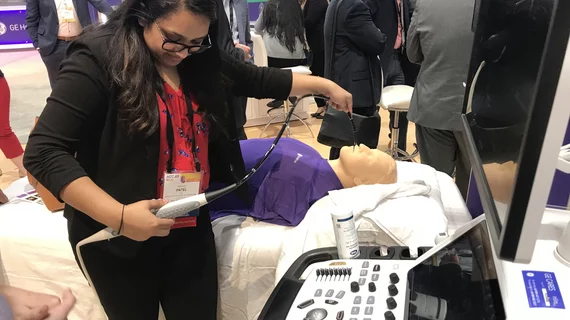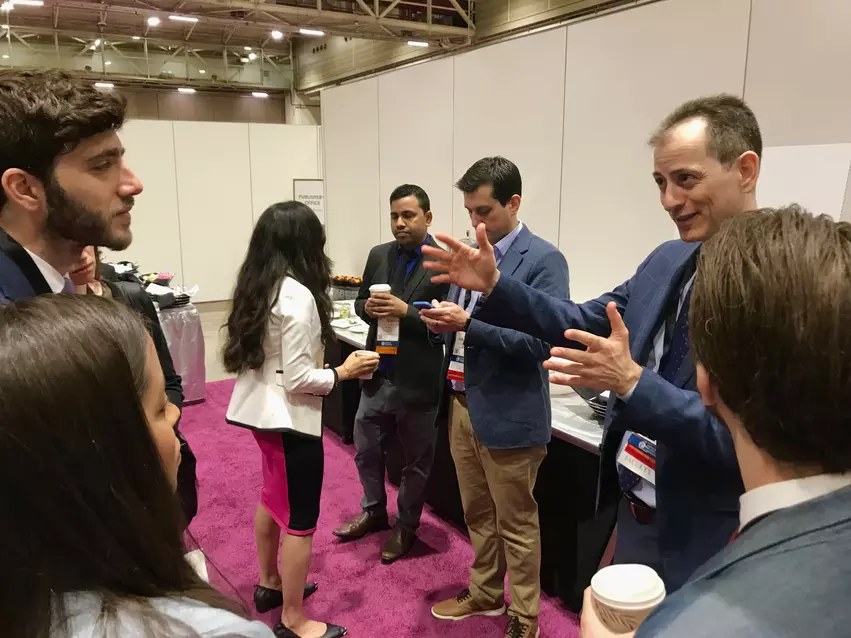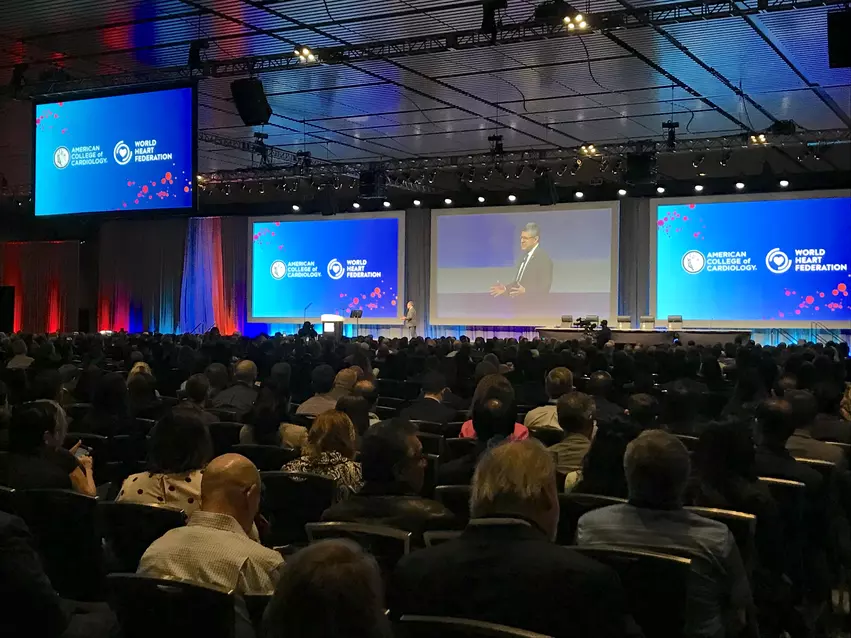ACC.23 emerges as a return to normalcy for the cardiology community
There was a general consensus among attendees, vendors and organizers that the American College of Cardiology's 2023 annual meeting, ACC.23 Together with the World Congress of Cardiology, felt like a true return to normalcy after years of feeling the effect of the COVID-19 pandemic.
Many people ran into old friends in person for the first time in three years because of cancelled conferences and travel restrictions by both vendors and hospitals on their clinicians. In addition, ACC.23 felt like it was full of people everywhere you looked; the expo floor was crowded, session rooms were jam-packed with attendees, and hands-on training presentations were closely watched by large groups.
The preliminary attendance numbers confirm what many attendees suspected: there were indeed a lot of people there for the three-day conference in New Orleans. In fact, there were more professional attendees than in 2019, the last meeting prior to the COVID-19 outbreak.
Here are the numbers showing an increase in attendees compared to 2019 before the pandemic:
2023:
Total Professional: 12,854 (virtual 1,947)
Total registrations: 16,841
2019:
Professional total: 12,472
Total registrations: 17,245
New, first-time attendees at ACC also appeared to be very high, with pent-up demand for attending large cardiology meetings like ACC. This was evident with a massive line of about 1,000 people waiting to get their photo taken in front of the ACC logo in the foyer of the convention center. While there usually is a crowd around the logo the first day of past ACC conferences, nothing in the past compared to the this year's line stretching about the length of 2 football fields.
ACC.23 saw out-pouring of a renewed sense of community
"We could not be happier over the turnout. The enthusiasm, the buzz, and certainly the in-person science and education were all things we have been waiting for and looking forward to," explained Doug Drachman, MD, ACC.23 program chair and director of education and the interventional cardiology fellowship program at Massachusetts General Hospital. "The greatest thing I think we all felt coming here is this sense of energy, a sense of and return to community. The cardiology community is only so big, so when we can all be together and share these experiences in person and learn from one another, engage and reconnect, I think it makes it incredibly exciting and gratifying."
He said efforts were made to provide more hands-on training this year with a simulator training area, since this has not been widely available for the last three years.
"We had incredible uptake, and on the first day we have more 800 people who visited the simulators, and it was extraordinary to see that," Drachman said. "I think people are really hungry to engage with this type of education and have this type of interaction."
He said this year's ACC meeting clearly showed a renewed sense of community in cardiology.
Number of vendor booths higher in 2023 than 2019
ACC also reported that the number of vendor booths this year was higher than in 2019. Booth totals in 2019 were 262 and rose to 281 at ACC.23 this week. While some vendors did downsize from their larger pre-pandemic booth sizes and some brought fewer people to staff their booths, there were more companies to see. This notably included several first time artificial intelligence (AI) vendors that had gained U.S. Food and Drug Administration approvals for their products during the pandemic.
COVID masks largely disappeared at ACC.23
Face masks have been the sign of the times during the pandemic, and some hospital systems still require them. Officially, face masks were required at last year's meeting, many attendees still attended without fully masking up.
This year, face masks were not required, and people wearing faces masks were far and few between. Only a small number of clinicians and vendors wore masks at this year's meeting. In fairness, the vast majority of attendees are vaccinated, and most clinicians have had multiple boosters. This was to protect themselves from the thousands of people from around the country and around the world converging in New Orleans this past weekend.



